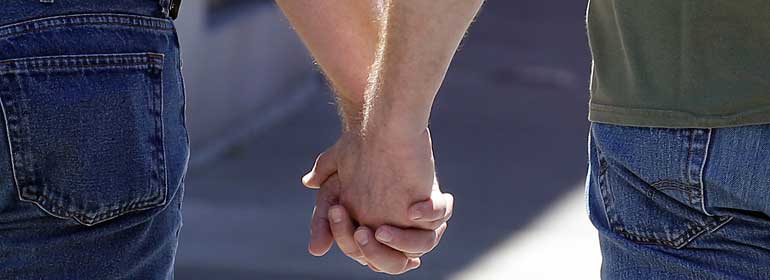Everything associated with LGBT lives has been wrongly placed in a political context, says Adam Long.
We are currently witnessing a disturbing trend where everything associated with LGBT lives has become automatically controversial and placed in a political context, as if we were not really a community at all but simply a lobby group in a marketplace of competing and equally valid ideas and ideologies. Such a flawed approach to LGBT lives and identities has given rise to a number of incidents where LGBT status in itself, as opposed to any particular issue or campaign, has come to be seen as a contentious political viewpoint that requires balance, debate or even censoring. This is unacceptable.
Yes, our community has become more determined and politicised around fundamental issues of equality, and that is a very positive thing, however sexual orientation is neither an opinion nor a political construct, but an innate characteristic that should be viewed in exactly the same terms as something like gender or ethic minority status. Yet uniquely, where LGBT people are concerned, the crucial distinction that exists between personal identity and political advocacy has become blurred in a manner that is very troubling.
A recent example of this phenomenon saw the GAA refusing to allow an openly LGBT referee wear a rainbow armband at a match, intended to be a statement of LGBT visibility and opposition to homophobia in sport. The GAA claimed that such a display would contravene its status as an ‘apolitical organisation’ and the same-sex marriage referendum was specifically referenced.
I don’t follow sport and have little knowledge or interest in the GAA or its internal workings. However this touches on a much wider and more fundamental point: Tackling homophobia and promoting LGBT participation should not be treated as matters of political controversy, but rather best practice deserving of the full support of any organisation. Instead, we saw the noble intentions of a gay referee censored, accompanied by an official statement invoking the entirely separate issue of the marriage equality referendum as justification for the action taken.
This not only amounted to a serious failure on the part of the GAA to understand what the referee was attempting to do, but also sent out a very negative message to its LGBT members. The fact that there exists a palpable lack of openly LGBT players in the organisation in question, and where it has been criticised in the past for failing to adequately address homophobia in its ranks, only makes their actions even more disappointing. And while the GAA commits itself to respecting “people of all nationalities, religion, ethnicities, ages and abilities,’ the statement makes no mention of sexual orientation or gender identity.
A somewhat similar incident occurred in 2012 when then Garda Commissioner Martin Callinan prevented members of G-Force (Garda LGBT group) from marching in uniform in that year’s Dublin Pride parade. A European LGBT Policing Conference was being hosted in Dublin at the time, and the refusal of the Garda leadership to allow uniformed participation in the parade stood in marked contrast to every other visiting police delegation being permitted to do so.
Similar to the GAA, the explanation provided was that it would compromise An Garda Siochana’s neutral and apolitical status. But the Gardaí, as a powerful and highly visible arm of a State that is not ‘neutral’ where the rights of LGBT people are concerned, should avail of every opportunity (including a Pride parade) to establish greater links with the LGBT community, not least to help address the chronic under-reporting of homophobic hate crime that persists.
There has been better engagement with the LGBT community under new Commissioner Noirin O’Sullivan, with her commitment to reform, and there was also the much welcome sight of the rainbow flag flying over Garda Headquarters in Limerick to mark the city’s Pride parade last summer. Such important, visible support is not a ‘political’ act – the rainbow symbol represents our global LGBT community rather than one particular issue.
We have also seen a false politicisation of our identities in the media, with the referendum again seeming to serve as an all-encompassing backdrop for anything LGBT-related. A number of rulings from the Broadcasting Authority of Ireland (BAI) towards the end of last year proved highly controversial, and led to much anxiety in the LGBT community and beyond. In the interests of ‘balance’, it seemed every discussion featuring an LGBT voice had to be automatically ‘balanced’ with a voice opposed to LGBT people and our rights.
As a response to growing criticism, the BAI recently stated that its rulings were being misinterpreted and that absolute ‘balance’ in such matters was not always necessary. But once again we saw identity being automatically and wrongly conflated with political campaigning.
The outcome of the May 22nd referendum on marriage equality will be a watershed moment for our community and for the country in general. It will hopefully see LGBT couples and families finally afforded full equality and recognition in this republic of ours.
A secondary positive effect should be the removal of the issue as an excuse to frustrate much needed, on-going efforts to address the kind of homophobia that still persists in many areas of society. Such efforts should never be seen as ‘political’ or contentious, but simply best practice by any group, agency or organisation that is serious about opposing discrimination in all its forms.
© 2015 GCN (Gay Community News). All rights reserved.

comments. Please sign in to comment.